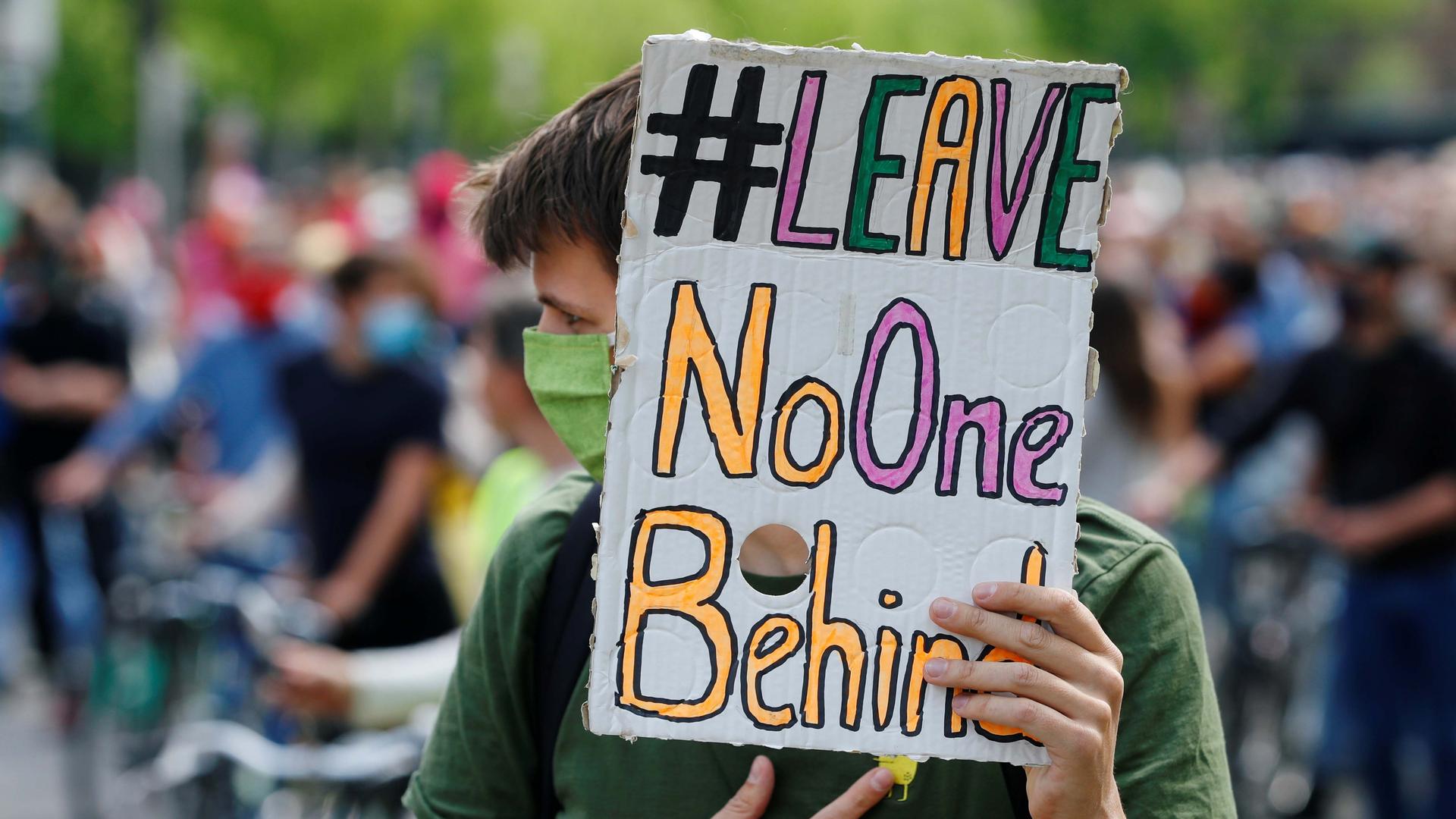A protester displays a banner during a left-wing May Day demonstration as the spread of the coronavirus disease (COVID-19) continues in Vienna, May 1, 2020.
As the world was recovering from the Great Recession a few years ago, French economist Thomas Piketty’s book on income inequality, “Capital in the Twenty-First Century,” reached No. 1 on The New York Times bestseller list. It catapulted him to near-rock star status.
His observations are prescient as the global economy sinks into its worst recession and unemployment soars amid the coronavirus pandemic.
Piketty’s new book, “Capital and Ideology,” which came out in March, examines the history of policies and political systems that have sustained economic inequality and how the world might move toward a fairer economic system. He spoke to The World’s host Marco Werman about the inequalities the pandemic has exposed.
Related: COVID-19: The latest from The World
Marco Werman: May Day is Friday — it’s about workers and laborers. What does this particular May Day mean to you, as unemployment skyrockets around the world and the ability to work is so fragile during this pandemic?
Thomas Piketty: Oh, you’re right. This is a very, very strange time. And you know what is crazy to me is, it illustrates really the very large prevalence and, in many ways, the violence of social inequality.
We see that it doesn’t mean at all the same thing, depending on whether you are locked down in a big house or a nice apartment or whether you are with your family, a very small home — or the homeless people which, nobody really takes care of them properly. And also the existence of saving and wealth and income support allows you to remain in confinement. Whereas, people who have a very flexible labor market status, they have to go and work. This crisis is really illustrating both the violence of inequality and also the need for another economic system.
Give me an example of one country that is looking soberly at the pandemic and thinking about ways of adjusting that economic inequality.
I think at this stage, you know, everybody is trying to do something. So, some countries have initiatives like — in Portugal, they decided two weeks ago to have a temporary regularization of illegal migrants so at least they can provide income support for people in the street and access to health facilities and some kind of legal status. Actually, during this time of the pandemic, most of the countries in Europe did not do that. And I think, you know, it would be useful. I can see in the streets of Paris you have lots of homeless people. Far too little has been done with respect to this population. Now, the next step is going to be how do the different countries design the recovery after the crisis?
Related: As the coronavirus drags on, Mexico’s food prices soar
So, maybe it’s too early to come up with a blanket solution in the pandemic timeline. But let’s take a small piece of the puzzle. In an ideal world, what would you do with those homeless people in Paris that you’ve seen in the new socioeconomic reality?
Well, I think there are lots of empty apartments and certainly, lots of empty hotels right now because of falling tourism. But, I think in many cases, there is a kind of disillusion that, it’s very complicated, we cannot change the economic system. And my general message is that, yes, it is possible. And I think it would be better to use European monetary policy to invest in real economic sectors like, for instance, the environment; increase bottom wages and middle wages; and [treatment of] health care workers. And then, of course, we’ll also have to renovate our tax system. We need to go in the direction of a progressive tax on largely millionaires and billionaires. And for this, we’ll have to change. And, you know, we are not at this stage yet, but I think we, ideally, we should use this opportunity to think about this kind of perspective.
So, the pandemic has created many opportunities, and some governments are taking them. The US under Donald Trump has gone its own way. The president seems to believe that he can literally and figuratively wall the US off from the rest of the world. If that position continues, what do you see economically happening to the US following this pandemic whenever it starts to subside?
You know, as usual, the nationalist response and anti-immigrant response of people like Trump, in the long run, is not going to work. That’s why I’m optimistic in the long run that we will return to a more redistributive, internationalist perspective and policy. The problem is that the long run can be very, very far away. In the immediate future, this kind of very strong nationalist discourse can seem attractive to a number of voters, especially if they don’t see a clear alternative. I think that’s one additional reason to try to develop an alternative discourse about changing the economic system.
This interview has been lightly edited and condensed for clarity.
We want to hear your feedback so we can keep improving our website, theworld.org. Please fill out this quick survey and let us know your thoughts (your answers will be anonymous). Thanks for your time!
